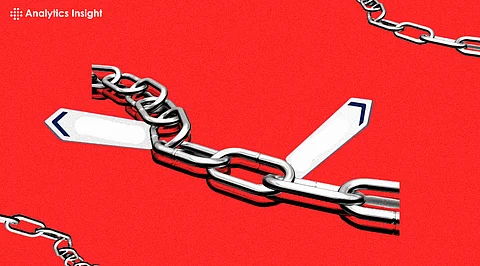

Zero-knowledge proof (ZKP) is a cryptographic method that enables the confirmation of the accuracy of a piece of data without disclosing the data itself. It has become an important technology in various fields such as blockchain, cryptocurrency, and decentralized finance (DeFi) by promoting confidentiality and protection.
The idea of zero-knowledge proofs was initially introduced in a groundbreaking article in 1985, called “The Knowledge Complexity of Interactive Proof Systems.” Their capacity to improve privacy and security while building trust remains a key factor in their growing use across different fields.
Different decentralized financial projects are applying ZKPs to shield their users from risks and also add more privacy. Some level one blockchains are even integrating roll-ups which are ZKP-based or zkEVMs. We expect that there will be an increase in the importance of zero-knowledge proofs within blockchain technology and Web3 domains because their implementation is more likely to expand.
Although zero-knowledge proofs (ZKPs) have clearly become a revolutionary approach to improving the privacy of blockchain, they represent only one step in the journey towards unmatched data security. Grasping their constraints opens the door to investigating a variety of hopeful upcoming privacy technologies.
The more blockchain technology is used, there are some cryptocurrencies that consider privacy like ZCash and Monero is becoming increasingly popular; with these digital currencies utilising complex encryption techniques aimed at concealing the identity of the user as well as maintaining transaction secrecy. They mark a major advancement in the quest for financial anonymity.
Homomorphic encryption allows doing calculations on encrypted information without decrypting it first. This innovation could enable smart contracts within the domain of blockchain. Through these contracts, jobs can be performed on data that is encrypted and still keep the users’ identities confidential. It paves the way for secure, decentralized applications with a wider range of functions.
In the face of difficulties in scaling, blockchain networks are turning to Layer 2 scaling innovations such as zkRollups and Optimistic Rollups. These advancements improve privacy by consolidating numerous transactions into one proof, minimizing the visibility of confidential data on the primary chain.
MPC protocols allow several parties to work together to calculate a function using their inputs, all while maintaining the privacy of those inputs.
Future Growth: The path ahead for blockchain privacy suggests ongoing growth, with fresh methods and innovations constantly being developed.
Improved User Authority: It's expected that users will have increased authority over their personal information and transactions, as solutions focused on user privacy become more popular.
Regulations and Policies: Monitor the way that authorities and regulatory agencies respond to the increasing demand for privacy in blockchain, which could influence the course of the industry.
Interchain Privacy: Advancements in interchain privacy standards will allow for secure and confidential transactions among different blockchains.
Interoperability: Anticipate increased work to improve how various blockchains work together, all while ensuring strong privacy protections.
Universal Adoption: Expect blockchain technology to increasingly be incorporated into various sectors, such as finance, healthcare, and managing the supply chain, as privacy solutions evolve.
As the blockchain revolution progresses, strong privacy measures will be crucial in protecting confidential information and increasing consumer confidence. Although Zero-Knowledge Proofs (ZKPs) have shown their effectiveness in this endeavor, they are merely the starting point.
The primary purpose of ZKPs in blockchain is to protect user data and maintain confidentiality while still enabling trustless verification. This is particularly important for financial transactions, where details such as the amount and the parties involved need to be kept private. ZKPs enable scalability by allowing more efficient transaction validation processes, reducing the amount of data that needs to be processed and stored on the blockchain. By integrating ZKPs, blockchain systems can achieve higher throughput and lower costs, making them more practical for widespread adoption while preserving user privacy and security.
Zero-knowledge proofs (ZKPs) offer several benefits, particularly in enhancing privacy and security. They enable the verification of transactions without revealing any underlying details, protecting sensitive information. ZKPs also improve scalability by reducing the amount of data that needs to be processed and stored on the blockchain. This leads to more efficient and faster transactions. Additionally, ZKPs help maintain confidentiality in various applications, such as financial transactions and identity verification, ensuring data integrity while maintaining trustless verification.
Zero-knowledge proofs (ZKPs) significantly enhance privacy protection by enabling the verification of transactions without disclosing any underlying data. This ensures that sensitive information, such as peral identity or financial details, remains confidential while still proving the validity of the transaction. By allowing only the necessary data to be shared, ZKPs minimize the risk of data breaches and unauthorized access. This technology is crucial for maintaining privacy in applications like secure communications, confidential transactions, and identity verification.
Zero-knowledge rollups enhance Ethereum's scalability by bundling multiple transactions into a single batch processed off-chain. They use zero-knowledge proofs to verify these transactions without revealing details, then submit a concise proof to the Ethereum mainnet. This reduces the load on the Ethereum network, lowers gas fees, and increases transaction throughput while maintaining security and decentralization. zk-rollups are crucial for improving Ethereum's performance, making it more efficient and cost-effective for users and developers.
Zero-knowledge proofs (ZKPs) significantly impact data security and privacy by enabling one party to prove knowledge of information without revealing it. This enhances privacy in blockchain transactions, secures authentication processes, and reduces data breaches. ZKPs also improve scalability and efficiency in blockchain networks, as they allow for the verification of large datasets without disclosing sensitive information. Overall, ZKPs are pivotal in advancing secure and private digital interactions across various industries.
